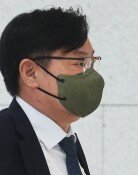Revision of Public Service Ethics Act is not enough
Revision of Public Service Ethics Act is not enough
Posted April. 29, 2014 00:21,
The sinking of the ferry Sewol revealed the back-scratching alliance of the ministry of Maritime Affairs and Fisheries, its affiliates and the shipping industry. Among the 12 former chairmen of the Korea Shipping Association so far, 10 were from the ministry of Maritime Affairs and Fisheries, and among 11 chairmen of the Korean Register of Shipping, 8 were from the ministry. The Korea Shipping Association permitted the ferry Sewol to put out from the port despite unfavorable conditions while the Korean Register of Shipping allowed Sewols renovation, which affected the ferrys dynamic stability. Former and incumbent public servants have continuously allied with the industry just like the mafia and deceived the Korean people. This so-called bureaucratic mafia has gone so far now.
The Ministry of Security and Public Administration announced Sunday the Revised Enforcement Decree of the Public Service Ethics Act that prohibits a retired public servant from working at associations or unions that are related to the ministry or agency he or she worked for the last five years for two years after retirement. The decree is effective from July this year. Article 17 of the current Public Service Ethics Act bans public servant retirees from working at profit-making enterprises only. With the revision, former public servants employment at related associations or unions now can be limited. Nevertheless, it is still doubtful whether the long-standing practice of retried public servants appointment at affiliated organizations can be eliminated. Many who have benefitted from this practice will try to find loopholes or other measures such as career fabrication to maintain their interests.
The Ministry of Education also advised its internal code of conduct to prohibit high-ranking officials from being appointed as a university president within two years after retirement. The ministry took this action considering the criticisms over the alliance of the ministry and universities, the so-called Edu-mafia, but the provision is not legally binding. An education secretary identified by initial K was in charge of auditing private universities in the Ministry of Education. He was hired as a professor by one of the universities he audited only one day after his retirement. Among 13 former vice ministers of Education who have retired since the Kim Young-sam administration, 11 (92 percent) were appointed as a president of four-year or two-year colleges. With the recent announcement of restructuring plan to reduce the college quota by 160,000, non-performing local universities are aggressively lobbying the ministry through the Edu-mafia. Education Minister Seo Nam-soo also had served as a president of Uiduk University from July 2012 until he took ministers office. Because the university was selected as a university benefiting from limited student loans in the year he was appointed as minister, it had to undergo an inspection.
As the corruptive custom of granting privileges for ones former post is deep-rooted in Korea, the Public Service Ethics Act is powerless. The Public Official Ethics Committee rejected only 78 (7 percent) out of 1,108 cases asking for approval for employment, from 2010 to June 2013. Public officials from ministries that deal with many regulations or authorizations related businesses tend to have more opportunities to get hired by private companies. Public officials expand their power by controlling the authorization process based on enforcement decrees or rules. Such a structure should be revised fundamentally. That will be the beginning of eradicating the bureaucratic mafia.
The National Assembly should squarely look at the current situation where people blame the public officials for sinking the nation and monitor and check the bureaucratic mafia. When the nuclear corruption was disclosed to the public last year, a series of bills limiting public servants to be hired by related enterprises were proposed, but most of them are still pending in the parliament. If the presidential office Cheong Wa Dae is also listening to the resentments of the Korean people, it should stop appointing figures who helped the presidents election campaign or those from Cheong Wa Dae as heads of public organizations.
Headline News
- Med professors announce intention to leave hospitals starting Thursday
- Bridge honoring Sgt. Moon Jae-sik unveiled in Pennsylvania
- Chief of Staff Chung tells presidential secretaries to stay away from politics
- US FTC bans noncompete agreements
- N. Korea launches cyberattacks on S. Korea's defense companies







